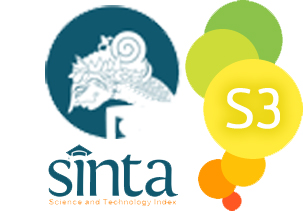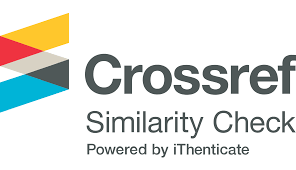Differences of Reticulocyte Count Before and After Iron-Tablets Administration
Abstract
Anemia is a condition where the number of red blood cells in the body is not fulfilled. Iron deficiency anemia in young women has to be taken seriously because it can cause the development disturbance. Reticulocyte is a parameter commonly used to determine the success of therapy in iron deficiency anemia, which showed the body’s physiologic response by enhancing the red blood cells production. This study aimed to find out the differences of reticulocyte count before and after administration of iron tablets on female students at Setia Budi University Surakarta. Using Randomized Control Trial, this study separated the subject randomly into control group and treatment group which received iron tablets for 7 days. The subjects were 40 female students at Setia Budi University in Surakarta. Reticulocyte count examination was carried out at the Setia Budi University Hematology Laboratory, using manual calculations with Brillant Cresyl Blue supravital staining. Data normality was tested with Saphiro Wilk and Independent t test were performed before and after 7 days administration of iron tablets between 2 groups. Reticulocyte count before supplementation in the treatment and control groups showed no significant difference (p = 0.084). After administration of iron tablets, reticulocyte count showed a significant difference (p = 0.005) between the control group and the treatment group. Effect Size exhibited p = 1.509 which meant that the effect of iron tablets supplementation was quite large. This study concluded there were significant differences in the reticulocytes count before and after the administration of iron tablets to the students of Setia Budi University, Surakarta. It is very important to take iron tablets regularly at recommended dose to prevent anemia in women of childbearing age.
References
Gilang, N. 2017. Panduan Pemeriksaan Laboratorium Hematologi Dasar. Jakarta: CV. Trans Info Media.
Handayani, W., & Haribowo, A. 2008. Buku Ajar Asuhan Keperawatan pada Klien dengan Gangguan Sistem Hematologi. Jakarta: Salemba Medika.
Hoffbrand, A. V., & Pettit, J. E. 2005. Kapita Selekta : Hematologi (Essential Haematology). Jakarta: Buku Kedokteran EGC.
Kiswari, R. (2014). Hematologi dan Transfusi . Jakarta: Erlangga.
Liswanti, Y, Nur Arifah, F. 2015. Gambaran Jumlah Retikulosit Sebelum Dan Setelah Donor Darah. Jurnal Kesehatan Bakti Tunas Husada Volume 13 Nomor 1 Februari 2015, 118.
Mantik, M. 2008. Efektivitas Penambahan Seng dan Vitamin A pada Pengobatan Anemia Defisiensi Besi. 10(1), 24-28.
Masrizal. 2007. Anemia Defisiensi Besi. Jurnal Kesehatan Masyarakat, 140-145.
Murti, B. 2018. Prinsip dan Metode Riset Epidemiologi. Edisi 5. Karanganyar : Bintang Fajar Offset.
Nurjanah, S, Ariyanto, T, Santosa, B. 2017. Perbedaan Jumlah Retikulosit Sebelum Dan Sesudah Menstruasi. http://digilib.unimus.ac.i/files//disk1/144/jtptunimus-gdl-sitinurjan-7167-1-abstrak.pdf (didownload 4 Agustus 2019)
Sacher, R. A & Mc.Pherson, R.A. 2002. Tinjauan Klinis Hasil Pemeriksaan Laboratorium. Jakarta: EGC
Ronald, A. S., & Richard, A. M. 2000.Tinjauan Klinis Hasil Pemeriksaan Laboratorium. Jakarta : EGC.
Suega, K. 2000. Aplikasi Klinis Retikulosit, 191-201.
Ulfa, E.S. 2014. Hubungan Perilaku Minum Tambel Zat Besi Pada Remaja Putri Dengan Kadar Hemoglobin. Jurnal Ners dan Kebidanan , 1, 57-61.























